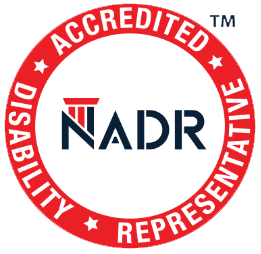How Education Affects Disability Claims
Before you understand how education plays a role in disability claims, it’s important to know how the Social Security Administration (SSA) defines disability. The SSA defines disability as the inability to engage in any substantial gainful activity due to any medically severe physical or mental impairment. Any medical condition has to last or be expected to last for a continuous period of a year or more, or result in death. In basic terms, you have to be unable to work due to your medical condition. If you are in fact unable to work due to your disability, it is only then that factors like education and age may be taken into consideration. While education plays a role in the evaluation process, sometimes it’s not as much as you’d think or at all.
When is Education NOT Considered?
In most cases, education is not considered if the claimant is approved based on the SSA listings. This handbook has the list of requirements for Social Security disability allowance. If the applicant meets a listing, education has no effect on their benefits. If the case is approved this way, it usually indicates sufficient medical records were able to help prove the criteria of a specific listing. For example, these could include but are not limited to degenerative disc disease, multiple sclerosis, or certain cancers. However, not all cases that are approved are because a listing is met. So, how are the majority of Social Security Disability Insurance (SSDI) and SSI cases approved?
When a listing isn’t specifically met, the following factors are evaluated in a sequential process that looks at:
- medical records
- work history
The evaluation is to help determine how limited (physically and/or mentally) an individual is and then compare this to their work history. The objective is to decide whether the individual can go back to work. This is where they decide if a claimant can perform substantial gainful activity.
When is Education Considered?
If the limitations are severe enough to rule out going back to their past work, the examiner will have to see if the individual can transition into another form of work. In making this determination Social Security will consider any skills you may have obtained from your previous work, how strenuous your last job was and your level of education. Education will only become a factor generally if you have a high school education or less, you have no past work or your past work did not provide you with any skills for other jobs and if you are age fifty or older. If you are under the age of 50 and/or have more than high school education, your education is not normally a determining factor in a disability decision.
The Final Answer
To conclude, the answer is yes. Education affects disability claims, but only in specific situations. It seldom has a real effect on the approval process unless the claimant is of advanced age, or is closely approaching advanced age, alongside a low level of education and low level of job skills. If you have questions about your case or need help navigating the Social Security disability process, contact DSS today. We offer free consultations and can assist on anything from filling out applications to handling your hearing. Call us at 410-244-006 to find out if you are eligible.



